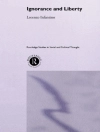It is supposed to be common knowledge in the history of ideas that one of the few medieval philosophical contributions preserved in modern philosophical thought is the idea that mental phenomena are distinguished from physical phenomena by their intentionality, their directedness toward some object. As is usually the case with such commonplaces about the history of ideas, especially those concerning medieval ideas, this claim is not quite true. Medieval philosophers routinely described ordinary physical phenomena, such as reflections in mirrors or sounds in the air, as exhibiting intentionality, while they described what modern philosophers would take to be typically mental phenomena, such as sensation and imagination, as ordinary physical processes. Still, it is true that medieval philosophers would regard all acts of cognition as characterized by intentionality, on account of which all these acts are some sort of representations of their intended objects.Mental Representation explores the intricacies and varieties of the conceptual relationships between intentionality, cognition and mental representation as conceived by some of the greatest medieval philosophers. The clarification of these conceptual connections sheds new light not only on the intriguing historical relationships between medieval and modern thought on these issues, but also on some fundamental questions in the philosophy of mind as it is conceived today.
Gyula Klima
Mental Representation (Volume 4 [PDF ebook]
Proceedings of the Society for Medieval Logic and Metaphysics)
Mental Representation (Volume 4 [PDF ebook]
Proceedings of the Society for Medieval Logic and Metaphysics)
Koop dit e-boek en ontvang er nog 1 GRATIS!
Formaat PDF ● Pagina’s 95 ● ISBN 9781443834131 ● Editor Gyula Klima ● Uitgeverij Cambridge Scholars Publishing ● Gepubliceerd 2011 ● Downloadbare 6 keer ● Valuta EUR ● ID 2598046 ● Kopieerbeveiliging Adobe DRM
Vereist een DRM-compatibele e-boeklezer












